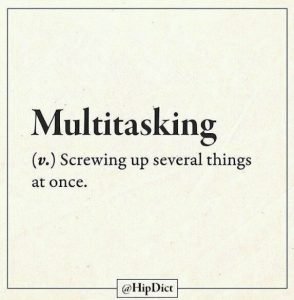As the new year starts to unfold, I believe you will hear that your team will START on new initiatives, goals or projects. I know that you might be even planning this for your own personal life.
Every new year, I constantly hear from people the new things that needs to be done, however I am curious, what about the old ones?
Well, unless you are thinking of working even longer and harder (at work), I do suggest that before you get too excited about starting on new things, relook at what you want to STOP doing first.
Many people focus on what’s needed to be done and keep adding to their plate, however, they fail to consider that the process of stopping what is not working is just as important as starting on what works.
Teams need to be ruthless in deciding what to STOP doing. If you want to feel more empowered, excited, or happy, just stop what is not working and focus on what’s necessary.

Here’s what you can Stop doing:
1. Redundancies or obsolete workflows/steps.
2. Things that are not worth the outcome.
3. Things that you just hate doing and is causing you to emotional distress.
Once you have decided what to STOP doing, now its time to START doing something else.

Here’s what you can Start doing:
1. What you should be doing?
2. How can you improve something in your life?
3. New knowledge to pursue?
4. New habits to develop?
5. What are the benefits to the above? Why do you really need to do it?

For example, one of the things that I have set out to do in the previous year that I have achieved much success is to STOP doing so much.
I decided that the only way to do this is to put a dollar value to my time.
Running a company is not easy and there are a lot of things to always think about. In fact, sometimes there are thousands of things screaming for your attention, but the problem is that not everything is important and most things are just urgent but unimportant.
There are always thousands of things to do in marketing, meeting clients, developing course curriculum, enhancing client experiences, sales, operations and many more…
I used to be scattered all over the place, doing everything and working even harder and longer hours, just to finish them. However, when I decided to put a dollar value to my time, it helped me to absolutely focus on the important things and outsource the rest of the unimportant ones. It helped me to focus on what is the importance of my role in the company and what created the most amount of value in it.
Here is what I did:
1. List down my monthly pay and divide it by 22 working days in a month. A typical month will have about 22 working days.
2. Divide this by the number of official working hours in a day. Do not count the additional Over Time (OT) hours. This will give you the amount of money you earn in an hour.
3. Ask yourself if what you are doing is really worth the amount of money you are earning in that hour.
For example:
- if you are earning about $8000/month. Your average wage per hour should be $45.45/hr. (Assuming 8 hours a day).
- if you are earning about $5000/month. Your average wage per hour should be $28.41/hr. (Assuming 8 hours a day).
- if you are earning about $3000/month. Your average wage per hour should be $17.05/hr. (Assuming 8 hours a day).
Once you have a clear time value of how much you are worth an hour (I hope you are not upset by what you have calculated), the next step is to take an internal audit to check if what you are doing is worth that amount.
Those that are not, consider to reduce or STOP it completely. For those that are, do more of it. Its that simple. Decision making becomes really easy for me when I have this figure in my mind all the time.
When I placed a time value on myself, I was able to drastically reduce my workload and just focus on what matters. In fact, simple and routine things like picking up items from stores or delivery were outsourced.
I remember a time when my colleague asked me to pick up some documents. I calculated that it will take me about 50 minutes to go and return. In addition to it, I had to factor in my petrol cost. I asked if this was worth my time and decided that it was not worth it.
The end of the story was that we just asked the company to courier the documents over. It only cost us $8 to do this but I saved a lot more time and also the distraction from what I needed to do.
This helped me to apply more time to focusing on what really matters to me, which is to work on my speaking engagements, building relationships with clients, focusing on personal training competencies and working on the business.
I hope this gives you an idea on what you need to start and stop doing. Have fun reflecting and I’m sure you will start realising that you need to spend more time on what really matters.
Disclaimer: I know that there are some things that you cannot put a time value to, e.g. talking to your kids, building relationships, having personal time and etc. But there are also many things that you can do it, have fun.
Download Stop Start Worksheet
I have prepared a simple one page Stop Start Worksheet to help you plan out what you should stop and start for the coming year.
Share it with your friends who may need it to start a great year ahead!









